Tony Robinson looked down at his right hand and was still having trouble adjusting to his new accessory.
"I'm going to wear it for a little while," Robinson said with a smile, looking at his Super Bowl ring. "I've got to get used to it."
Skip Lane, meanwhile, said that receiving a Super Bowl ring validated the contributions he and the rest of his teammates made during one of the most unique stretches in NFL history.
"I'm ecstatic," Lane said. "It's the coolest thing that has ever happened to me. It's weird because it's been such a long time coming and I think it's going to take a while to set in. It's actually on my hand for me to touch it."
The Washington Redskins honored replacement players from the team's 1987 squad with Super Bowl rings in a ceremony at Inova Sports Performance Center at Redskins Park on Tuesday.

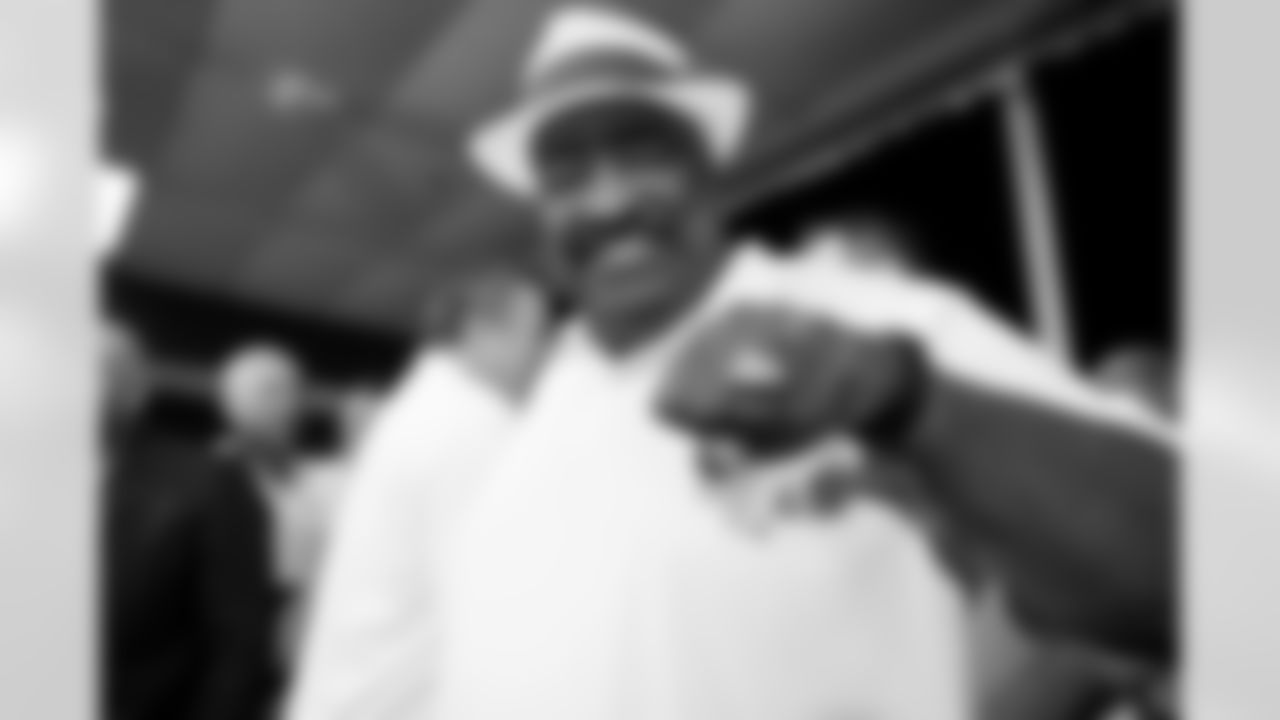
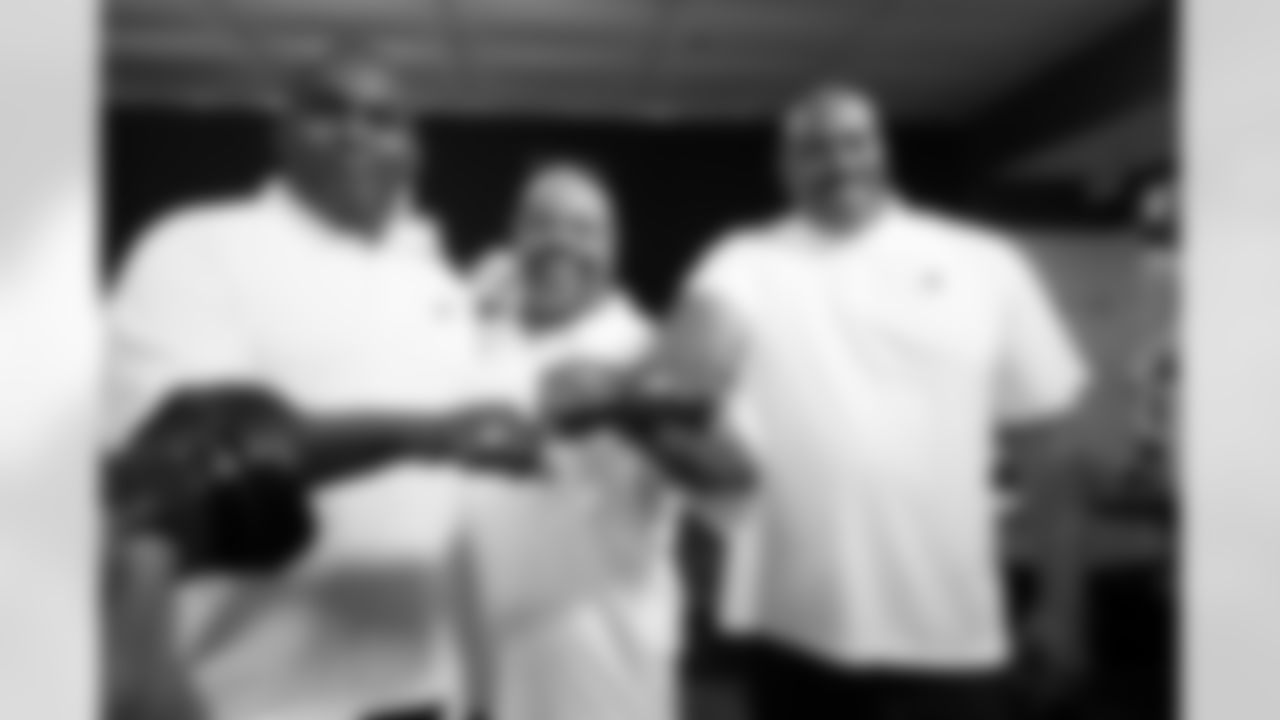
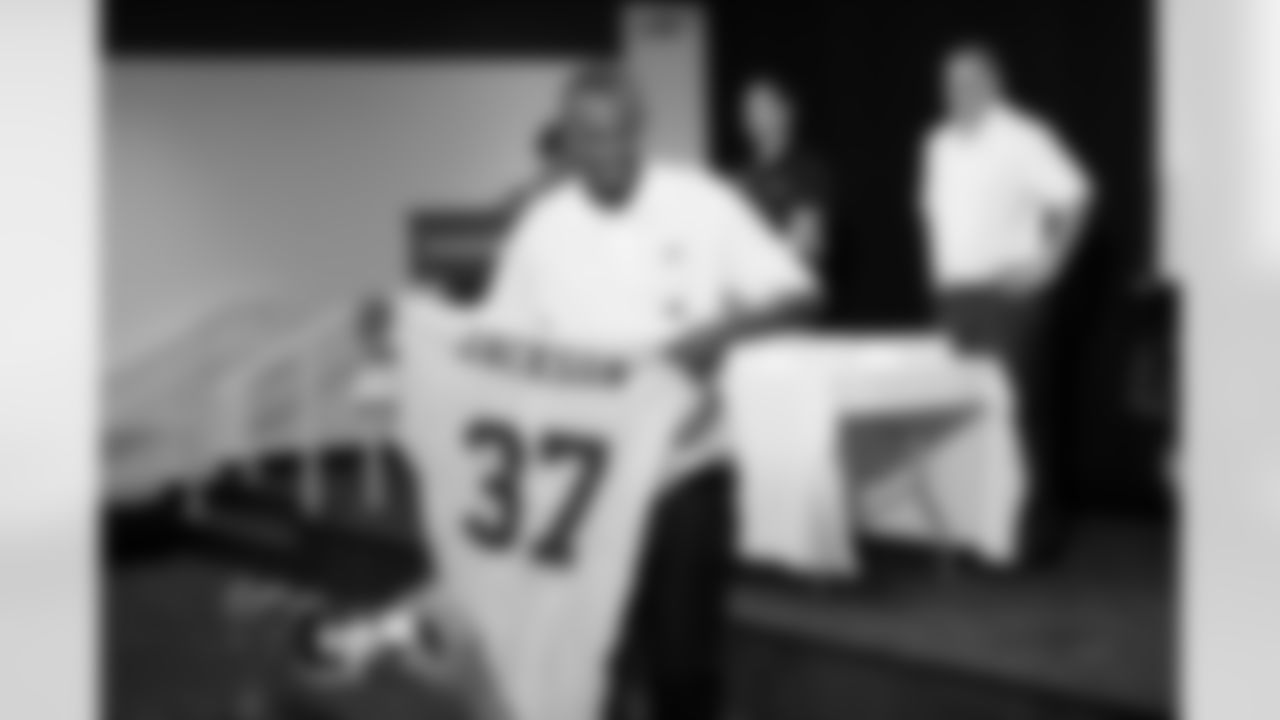




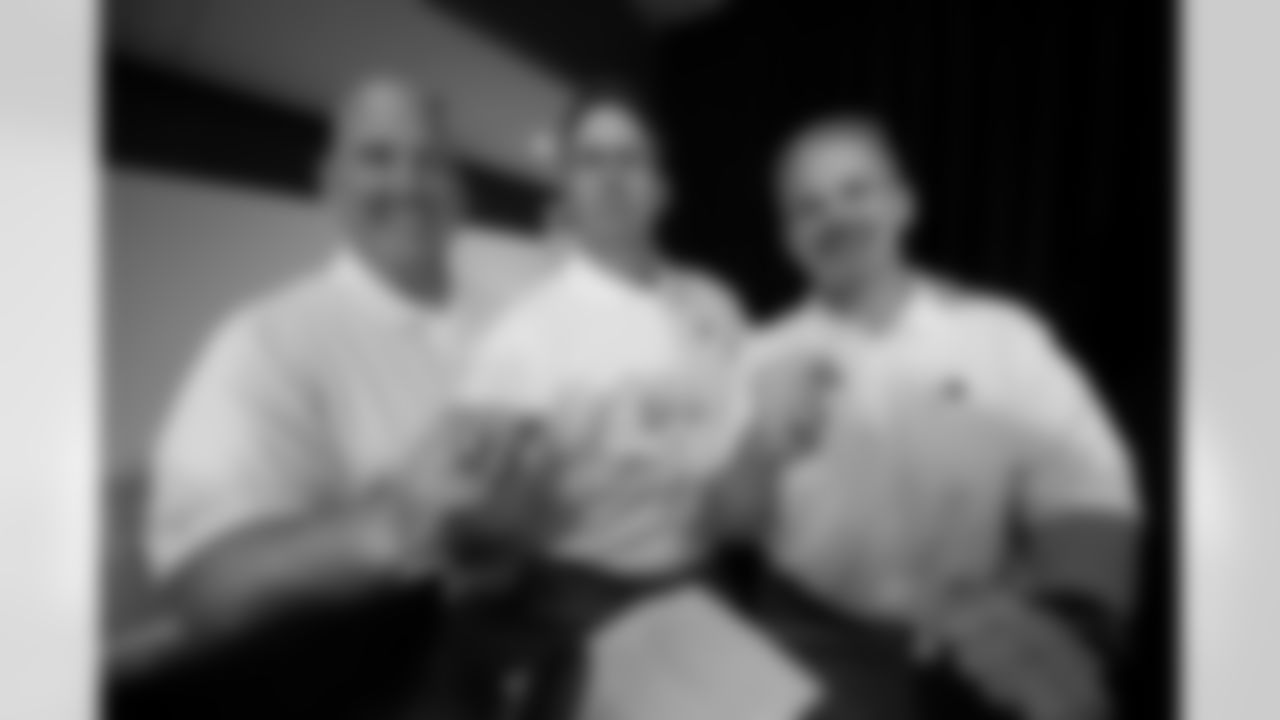
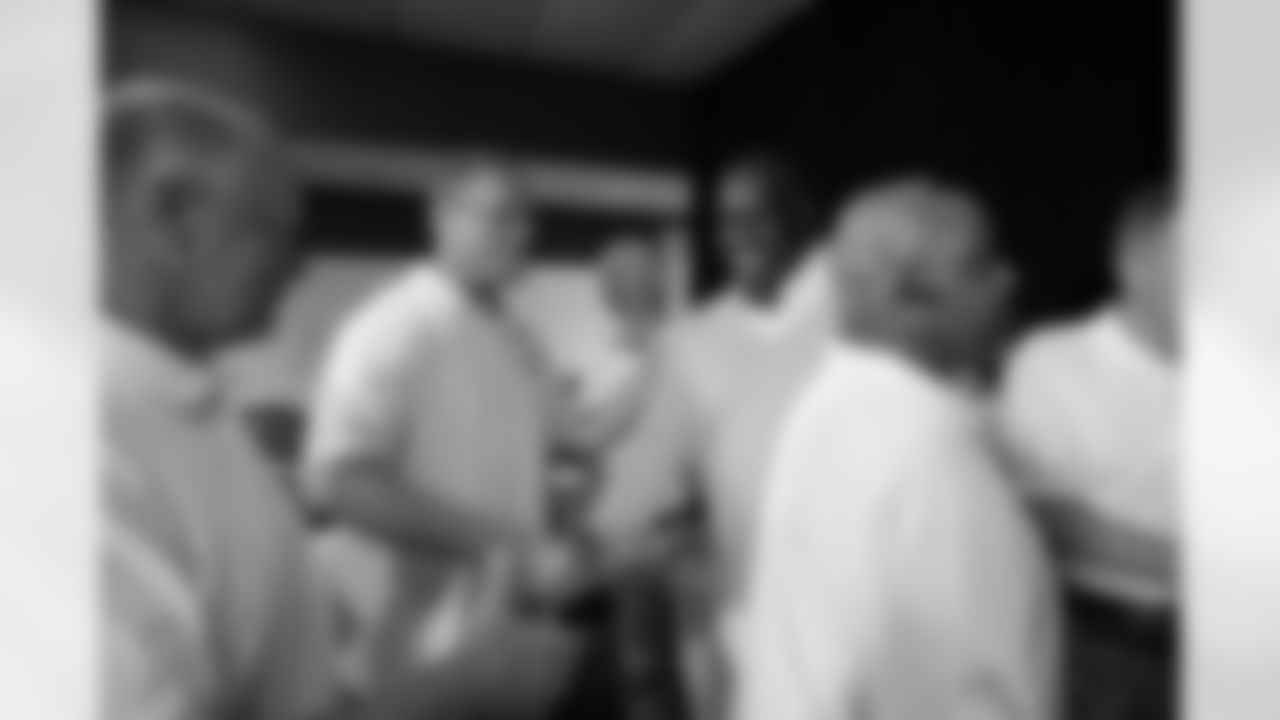

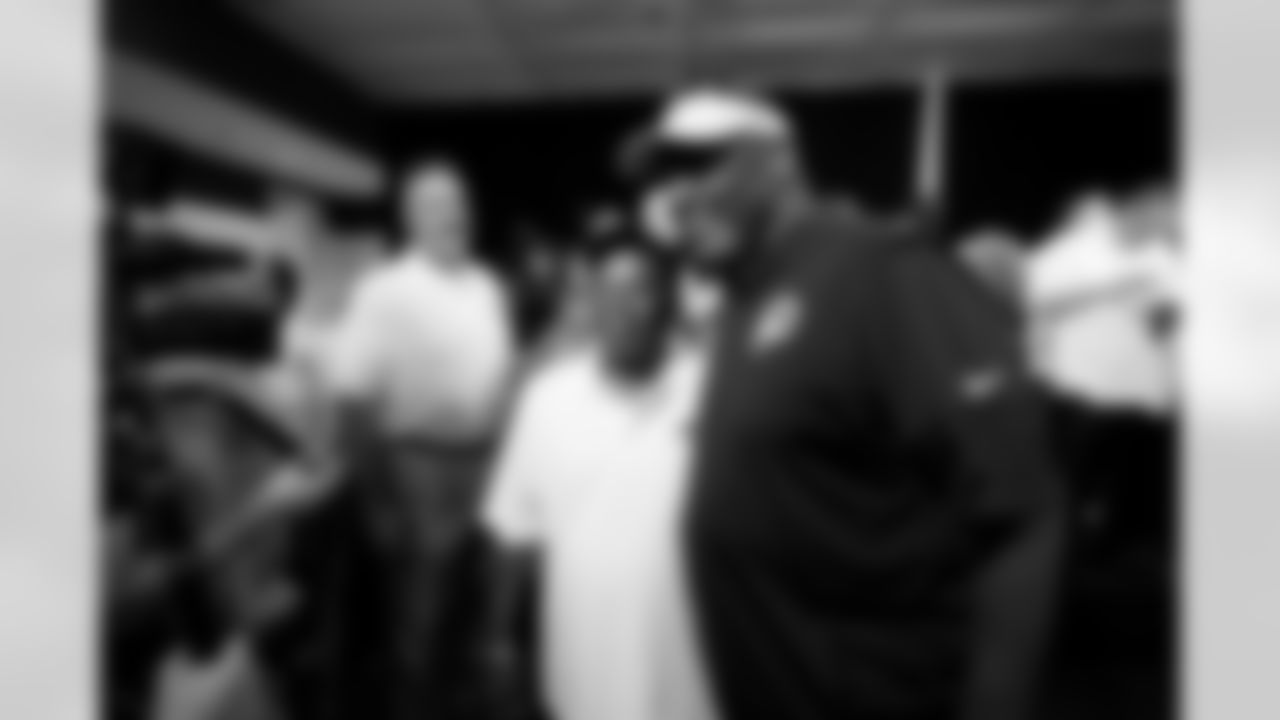
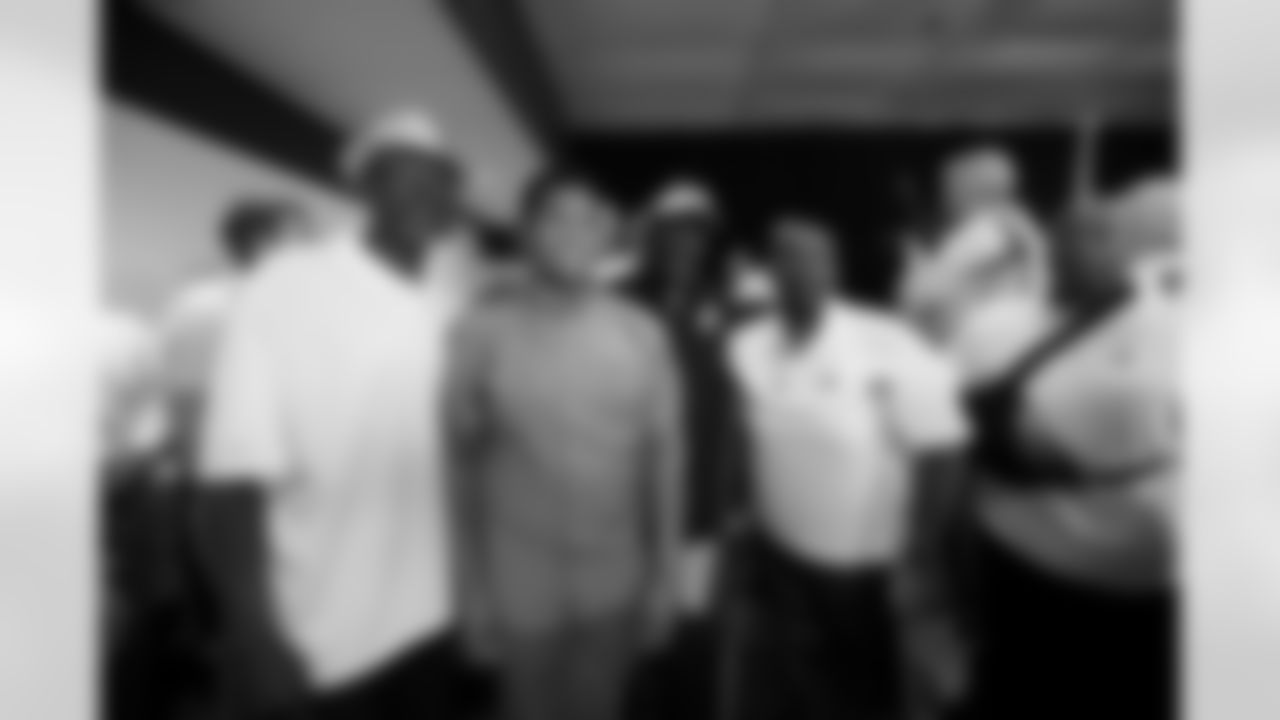




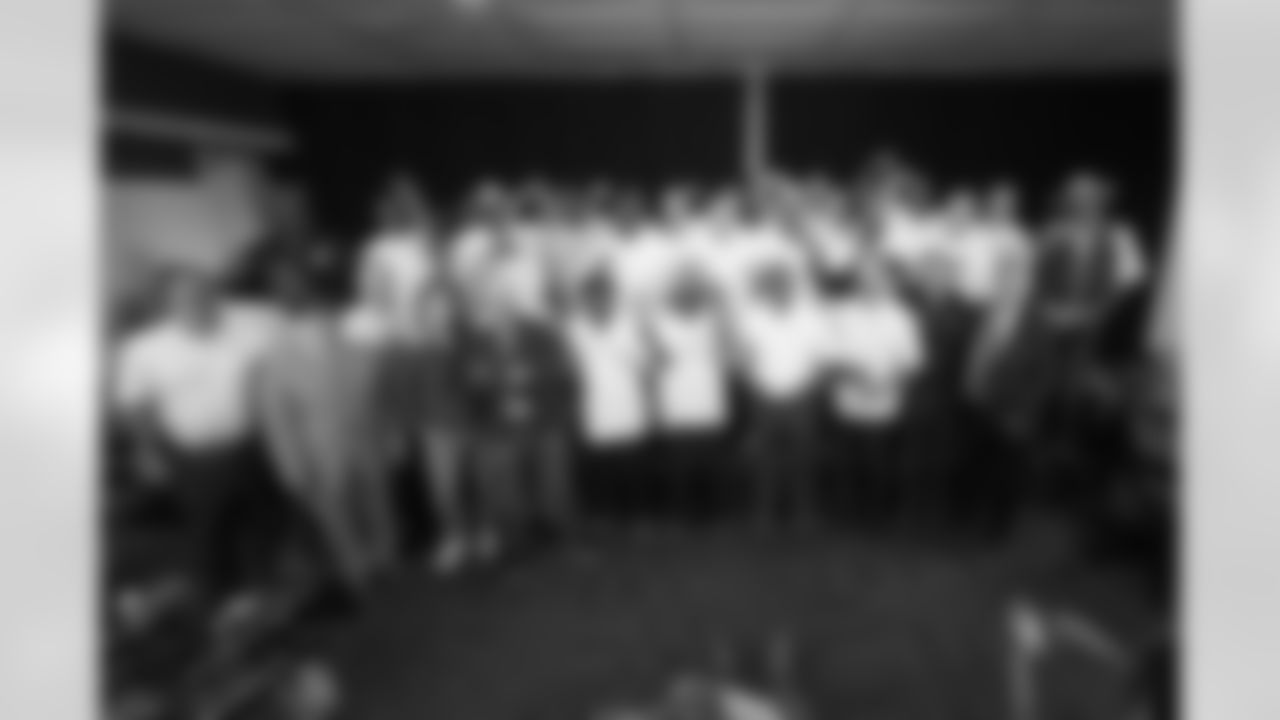
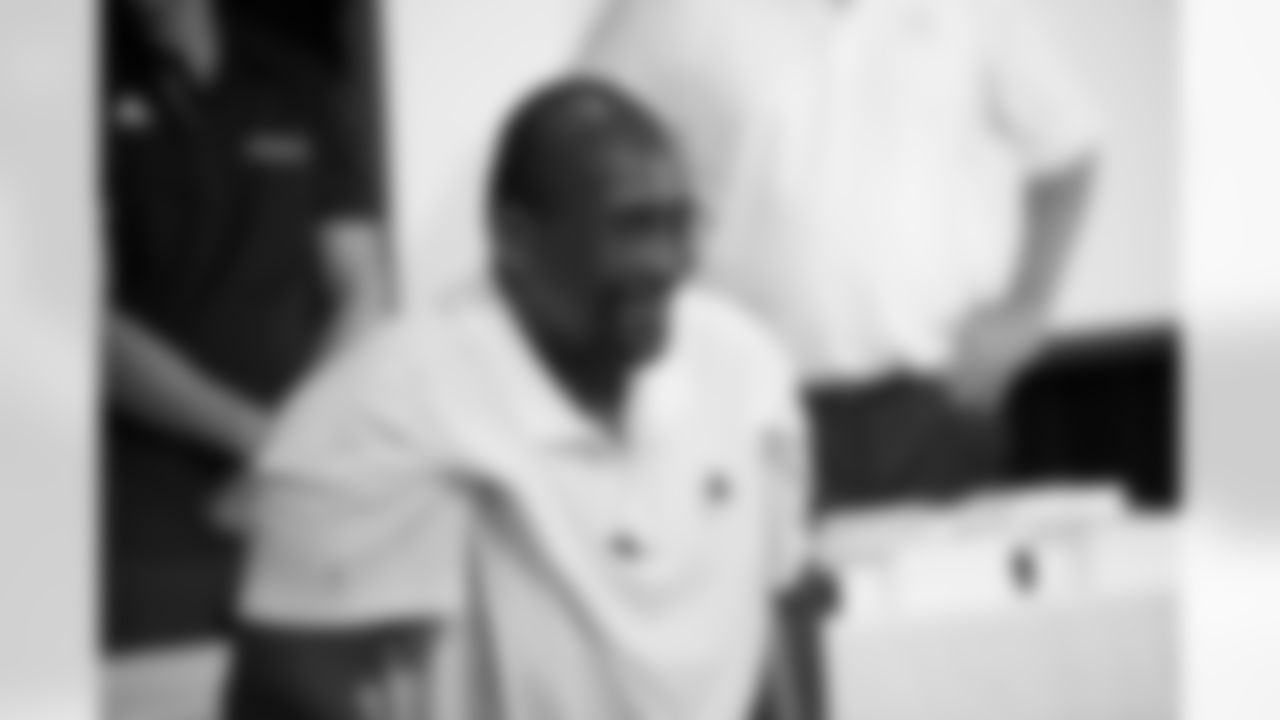



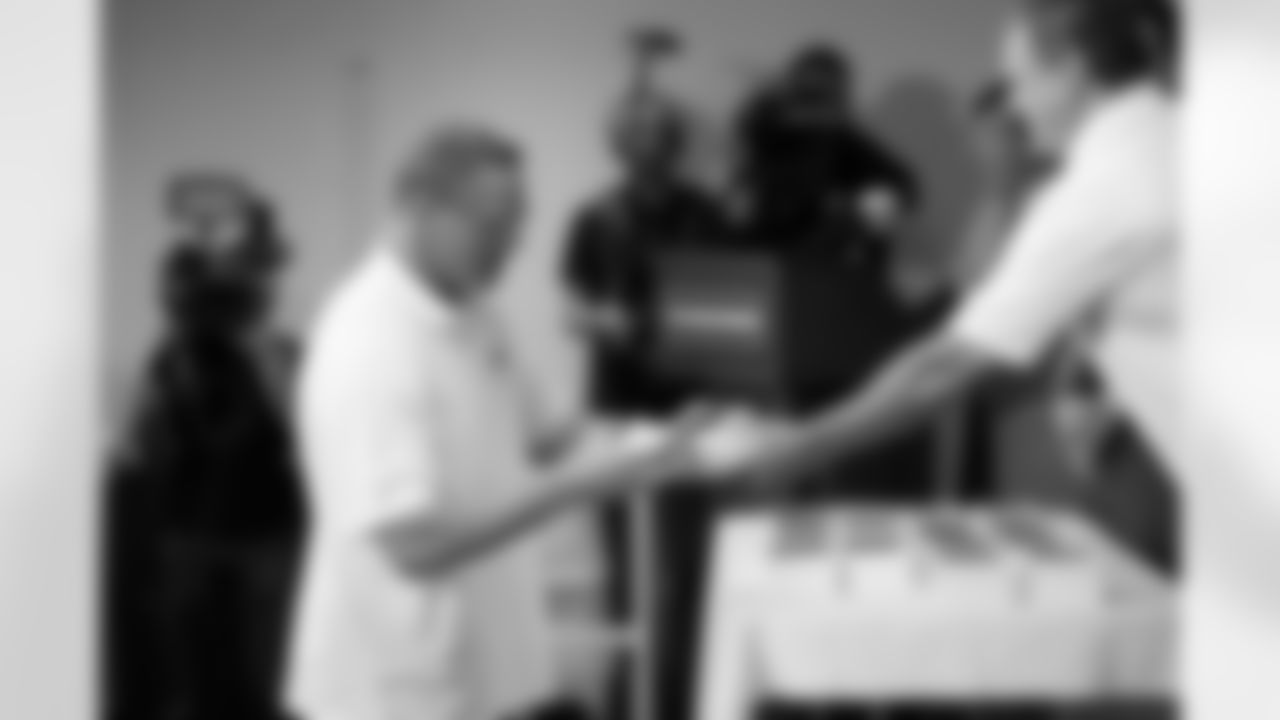

More than 30 years after the Washington Redskins won Super Bowl XXII in convincing fashion over the Denver Broncos, replacement players from that 1987 season on Tuesday received Super Bowl rings for their efforts during a special three-week run that will forever be remembered.
While the Redskins set 10 different team records for the Super Bowl including most points scored in one quarter (35) and total offensive yards in a quarter (356), Washington may have never even made the championship game if it wasn't for the likes of Robinson and the rest of a set of replacement players that became known as "Scabs."
After the first two weeks of the 1987 NFL season, regular players went on a strike that would last a total of 24 days. Week 3 games were cancelled, reducing the 16-game schedule to 15 games, but the league determined that games would still take place in Weeks 4-6 no matter who was on the field.
That left Washington's front office scrambling to find players that could fill the void. The man tasked with assembling the makeshift roster was assistant general manager Charley Casserly.
Casserly benefitted from players wanting to work under Pro Football Hall of Fame head coach Joe Gibbs.
"I always said that was the greatest coaching job he ever did," Casserly said during the ring ceremony. "But in interviewing you, and I interviewed almost every one of you, it was obvious to you the respect you had for Joe Gibbs. What you told me was your coaches, they took it seriously. By taking it seriously, we [the front office] had to take it seriously.
"You told me you came back here for two things. One, to get a second chance and two, you knew what your job was. To hold the fort until the veterans got back. Gibbs had so much respect for you."
Casserly had to look far and wide to find players that could fill in. Offensive lineman Williard Scissum, for example, was playing in the Canadian Football League when he received a call to join the Redskins.
"The BC Lions told them about me," Scissum said. "I had just left the BC Lions. That's why I ended up back in D.C. It was ironic that at the time I was in Washington, D.C., was when the strike started."
Not only did the players have to deal with the stress of being temporary additions and learning every single facet of being on NFL rosters on the fly, some of which had never even played a down in the league, but they also had to deal with anger from the regular players that went on strike.
When the bus carrying the replacement players arrived at Redskins Park, Darryl Grant started banging on the windows while Mark Carlson actually had his tires slashed after he drove to the team facility on his own.
Washington's first game with the replacement players took place on Oct. 4 against the then-St. Louis Cardinals at RFK Stadium in Washington, D.C. Despite the Cardinals having 14 regulars on the roster, the Redskins would score a 28-21 victory.
During that game wide receiver Anthony Allen recorded seven receptions for 255 yards, which still stands as a single-game franchise record, and three touchdowns, one of which still stands out to Casserly today.
"One of the coaches [said], 'Let's put Anthony on a post corner and see how that corner from St. Louis covers that move. I think the jockstrap of the corner is still laying at RFK," Casserly said with a laugh. "That one play was the signature play that showed me we could go win a game."
Defensive lineman Ted Karras remembered the feeling of winning that game and what it did for the confidence of his band of misfits.
"After we played that first game and beat the Cardinals and when the fans were chanting, 'Stay on strike', that turned everything we felt," Karras said. "Then we started being beloved and then we went on for the next two wins. That goes on in history. It was very odd at first. It wasn't easy. The NFL is not a right to play, it's a privilege and we got our three weeks."
In the second game during the three-week span with replacement players, Washington traveled to New Jersey to take on the New York Giants at Giants Stadium. Just as they had the week prior, the replacement players propelled the Redskins to an inter-division victory by taking down the Giants by a final of 38-12.
We believed in each other. We felt that what we did was really important to their success. And to have it all come together, to have the Redskins follow through and earn these rings. The whole process has just been tremendous. Eric Wilson
Despite the strike ending four days later on Oct. 15, Washington's replacement players would play in one final game on the road against the Dallas Cowboys on Monday Night Football.
Although the replacement players remained united on one side of the picket line and the Redskins' regulars were together on the other, Dallas had numerous regulars available for the game including Pro Football Hall of Famers Tony Dorsett and Randy White.
To stack the deck even more against the Redskins, starting quarterback Ed Rubbert went down with a shoulder injury in the first quarter.
But Washington remained resilient, holding Dorsett to less than 100 rushing yards and limiting White to log just one sack.
As for Robinson, he connected on 11-of-18 passes for 152 yards as the Redskins held off a late push by the Cowboys for a 13-7 victory.
"I knew the plays and everything. It was just getting up when you're number was called and executing the plays," Robinson said. "That's all it was and just doing what the coaches taught me to do."
While most of the replacement players never touched an NFL field again, they returned to the spotlight last year with ESPN's "Year of the Scab" 30-for-30 documentary.
On the heels of the successful look at Washington's replacement players, the Virginia General Assembly also officially commended them this March with House Joint Resolution No. 151, expressing "the General Assembly's admiration for their determination, hard work, and incredible achievements."
"There's a lot of emotion going on right now for a lot of reasons," said Anthony Sagnella, a defensive lineman who participated in all three contests. "One is the significance of the ring itself. Seeing it and putting it on, knowing what that piece of jewelry means in the National Football League. Getting reunited with old teammates is unbelievable. The 30 for 30 film brought back some of us. Today, it brought back many, many more and it's really, really cool to get caught up with these guys.
"That's really overwhelming right now. Then I think listening Charley Casserly and Dexter Manley and Doug Williams, guys that were a part of that Super Bowl team, having them embrace us as one team means the world to me. For the longest time, we felt like we were on the outside looking in. Today we feel like we're part of the family."
Proudly displaying the jersey he wore during his lone appearance with the Redskins against the Cardinals, defensive back Charles Johnson, meanwhile, admitted being a replacement player wasn't easy. But receiving a Super Bowl ring washed away any talk that he was just a "scab" and nothing more.

"Getting a Super Bowl ring today that just means that everything we went through back then was worth it," Jackson said. "You have many players that played 10 to 15 years that never received a Super Bowl ring. Finally receiving a Super Bowl ring today, it made everything we did back then worth it."
To honor the players for their role in the team's 1987 championship season, the Redskins worked closely with Baron Rings, represented by President Peter Kanis, while diamonds were provided by Uptown Diamond, represented by Principal Rick Antona.
Antona said that the rings the replacement players were given were modeled after the original rings other members of the 1987 squad received 30 years ago.
"The reality of it exceeds the expectation, and obviously all of these guys were hoping for this," said offensive lineman Eric Coyle. "It's hard to articulate right now. It really is. It's an indication of justification.
"I congratulate the Redskins and the front office and Charley Casserly and I appreciate them so much. Joe Theismann, Doug Williams and the guys that were on the film, all of those guys just advocating for us and helping make this become a reality. Four kids, been married, but this is one of the greatest days of my life. Absolutely, 100 percent."
The following players were in attendance during the ceremony:
Obed Ariri, Keiron Bigby, Derek Bunch, Mark Carlson, Joe Cofer, John Cowne, Eric Coyle, Alec Gibson, Allen Harvin, Charles Jackson, Ted Karras, Jon Kimmel, Skip Lane, Phil Pettey, Tony Robinson, Anthony Sagnella, Tony Settles, Willard Scissum, Jack Stanley, Henry Waechter, Eric Wilson, Wayne Wilson, David Windham, Mike Wooten, Jack Weil and Craig McEwen*
*Honored in attendance after receiving Super Bowl ring in 1987






